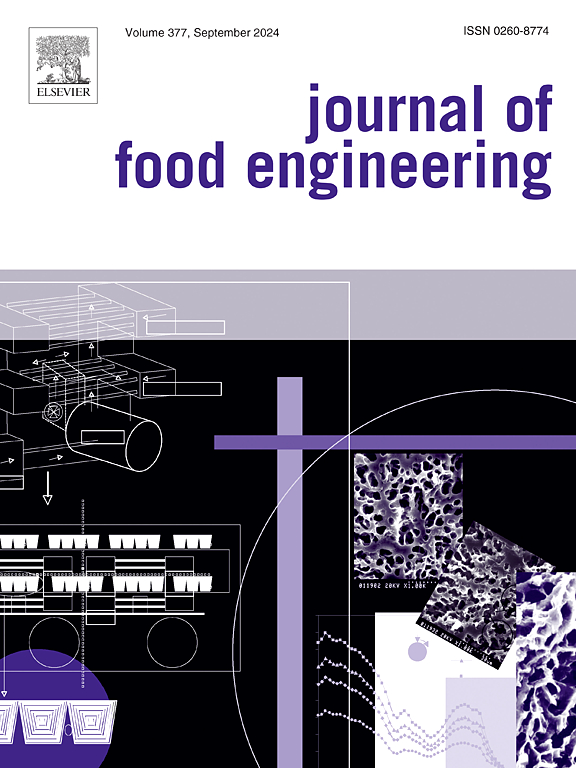Smartphone-assisted fluorescent probe to evaluate the salmon freshness
IF 5.3
2区 农林科学
Q1 ENGINEERING, CHEMICAL
引用次数: 0
Abstract
The meat of fish constitutes a significant component of human nutrition. However, the amines generated during its spoilage can potentially affect human health. In this study, the benzothiazole-coumarin derivative (MUS) has been synthesized. The fluorescent probe shows an obvious response to 15 amines in the EtOH/H2O (3/7, v/v) solution. The indicator label loaded with MUS can not only identify most amine vapors with the naked eye but also build a sensing platform by combining it with a smartphone. The green (G) and blue (B) value of the label was extracted by using an app on the smartphone, and then the linear relation between the B/G (or G/B) value and the measured the Volatile Basic Nitrogen (TVB-N) value was obtained, which can realize the accurate evaluation of fish freshness. At the same time, the fluorescent ink manufactured by MUS is printed on a silica gel plate using a stamp, resulting in a blue imprint that can only be seen under a 365 nm lamp. Printing fluorescent ink on the designed paper-based trademark can obtain the trademark with an anti-counterfeiting function. Therefore, MUS exhibits significant application potential and broad development prospects in the domains of food safety inspection, printing, and anti-counterfeiting technology.

智能手机辅助荧光探针评估鲑鱼新鲜度
鱼肉是人体营养的重要组成部分。然而,在其变质过程中产生的胺可能会影响人体健康。本研究合成了苯并噻唑-香豆素衍生物(MUS)。荧光探针对EtOH/H2O (3/7, v/v)溶液中的15种胺有明显的响应。装有MUS的指示标签不仅可以用肉眼识别大多数胺蒸气,还可以与智能手机结合,建立传感平台。通过智能手机上的应用程序提取标签的绿色(G)和蓝色(B)值,然后得到B/G(或G/B)值与测量的挥发性碱性氮(TVB-N)值之间的线性关系,可以实现对鱼类新鲜度的准确评价。同时,MUS生产的荧光油墨使用图章印刷在硅胶板上,产生蓝色印记,只有在365nm灯下才能看到。在设计好的纸质商标上印刷荧光油墨,可以获得具有防伪功能的商标。因此,MUS在食品安全检测、印刷、防伪技术等领域具有重要的应用潜力和广阔的发展前景。
本文章由计算机程序翻译,如有差异,请以英文原文为准。
求助全文
约1分钟内获得全文
求助全文
来源期刊

Journal of Food Engineering
工程技术-工程:化工
CiteScore
11.80
自引率
5.50%
发文量
275
审稿时长
24 days
期刊介绍:
The journal publishes original research and review papers on any subject at the interface between food and engineering, particularly those of relevance to industry, including:
Engineering properties of foods, food physics and physical chemistry; processing, measurement, control, packaging, storage and distribution; engineering aspects of the design and production of novel foods and of food service and catering; design and operation of food processes, plant and equipment; economics of food engineering, including the economics of alternative processes.
Accounts of food engineering achievements are of particular value.
 求助内容:
求助内容: 应助结果提醒方式:
应助结果提醒方式:


